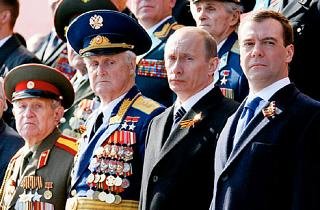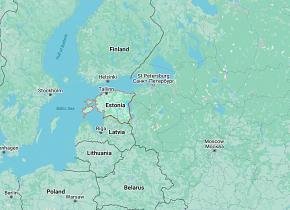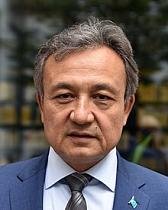Russia, China, USA: Big powers crowd Central Asia

The power struggle for resources and influence in Central Asia by big powers including USA, Russia, China and even India has been going on since the break up of Soviet Union and an emergence of independent Central Asian states. Since all these Muslim states are hopelessly corrupt, the outside powers seeking to control the region play havoc. People are concerned about almost permanent nature of Pui9tn's term at the helm of affairs of Russia. A win by Putin could result in his maintaining power until 2024. Former Soviet Premier Mikhail. Gorbachev has called upon Putin to step down only to be faced by rejection and even accused of instigating the collapse of the Soviet Union. Putin would find a compromise with the opposition or resort to coercion. Although the scale of rallies suggests that Russia's political life is on the cusp of change, there is no hope that would improve considerably the people lives. Moscow residents did not hesitate to express their discontent by going to the streets and demand the elections to be re-run. Among his election proposals, Putin “wants to bring ex-Soviet states into a Eurasian Union, on EU model, an expensive long-term project with no promise of becoming a cohesive single entity.†Russia already initiated the Customs Union that includes Belarus and Kazakhstan, which is set to enlarge and create a framework for the Eurasian Union. Since Russia also talks about more balanced foreign policy, Moscow's reduced activity in the region will be felt immediately. Russian foreign policy appears to be chiefly dominated and contested by two ideologically opposed camps, one inclined toward fostering closer relationship with the West, the other with a Eurasian outlook aimed reinstating Russia's dominion in the former Soviet republics. While Russia's grip on Central Asia substantially declined throughout the 1990s, other powers were quick to consolidate their regional presence. During the largest Russian protests since the Soviet Union’s fall 20 years ago, dissidents demanded Mr. Putin’s resignation and an election rerun. One demonstrator stated, “We don’t want another revolution, or bloodshed, but if Putin is going to win then there may be a ‘Russian Spring’—not an Arab Spring but a Russian one.†The various liberal, nationalist and leftist groups that took part appear united only by their desire to see ‘Russia without Putin,’ a popular chant. A top energy hungry state China will need to have continued access to energy resources, and Central Asia will increasingly become one of China's major suppliers. The USA “officially†entered Central Asia by establishing its first military base in the Kyrgyz Republic which is being used a bargain chip by Moscow by asking USA to its closure on several occasions. USA overstays in Kyrgyzstan terror base because of US's energy interests, though it bluffs about Afghanistan being the only cause. China, which hopes to become the largest economy by 2050, has since the advent of Putin’s assertive politics, conducted a cautious diplomacy in the region so as not to appear to be explicitly challenging Russia's traditional presence. However, Beijing has used the SCO (Shanghai Cooperation Organization) to strengthen its position Central Asia. Central Asia seems to be one of the main power struggle arenas between USA and Russia. China views peace in Central Asia as of direct relevance to stability in China's troubled Xinxiang province of Muslims and is eager to sue the leaders to help keep the Xinxiang region within China. Here even Russia, struggling to retain Muslim republics with Russian federation, has got a common platform. Russia, however, in contrast has backed separatism in places such as Georgia and Moldova.About the writer Dr. Abdul Ruff, Specialist on State Terrorism; Educationalist; Chancellor-Founder of Centor for International Affairs(CIA); Independent Analyst; Chronicler of Foreign occupations & Freedom movements(Palestine, Kashmir, Iraq, Afghanistan, Pakistan, Xinjiang, Chechnya, etc); Anti-Muslimism and anti-Islamism are more dangerous than "terrorism" Anti-Islamic forces & terrorists are using criminal elements for terrorizing the world and they in disguise are harming genuine interests of ordinary Muslims. Global media today, even in Muslim nations, are controlled by CIA & other anti-Islamic agencies. Former university Teacher; Website: http://
Comments
There are 0 comments on this post














